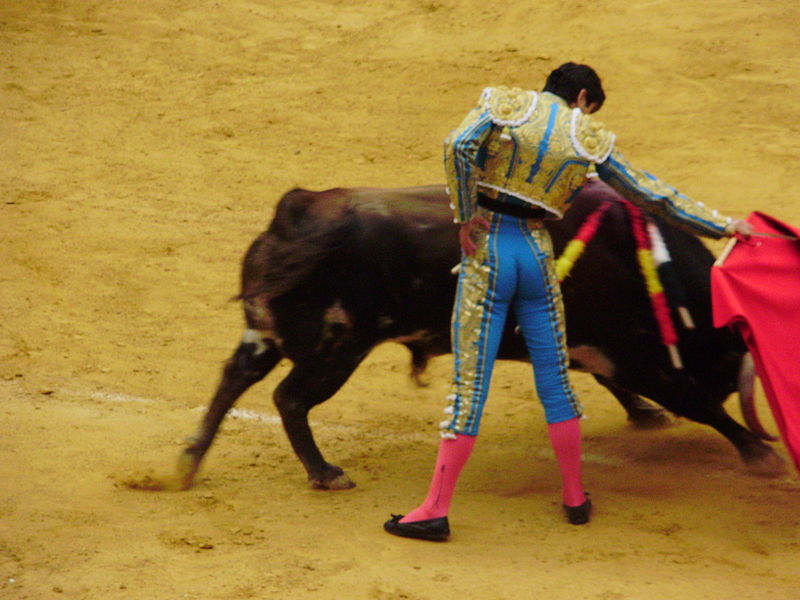Exit Ghost?
Biological Reviews publishes a 25-authors paper lead by Simon Townsend and titled "Exorcising Grice’s ghost: an empirical approach to studying intentional communication in animals." [1] I was quite
Alberto Acerbi on cultural evolution
Alberto Acerbi's excellent blog hosts a noteworthy discussion of Claidière, Scott-Phillips and Sperber's recent PTRS paper on cultural attraction. Alex Mesoudi, Thom Scott-Phillips and Dan Sperber
Incredible! Listening to ‘When I’m 64’ makes you forget your age
As an illustration of the power of priming experiments to produce astonishing findings, a recent study shows that people tend to underestimate their age (but not their father’s) after listening to
Blogs from ICCI contributors
ICCI contributors also blog elsewhere. I am happy to recommend two new blogs: Hugo Mercier's Social by Design on Psychology Today is devoted to popularizing his and Sperber's argumentative theory of
How much trust should we put in experimental results?
Thinking back on the year 2010, cognitive scientists will probably remember it as the year the Hauser affair broke out after years of rumors. That summer, a Harvard investigation committee found Marc
Denis Dutton (1944-2010)
In twelve years of existence, Arts and Letters daily (aldaily.com) hardly ever let a day pass without publishing its three witty three-liners. On the 28th of December, the feed was unusually late. It
camphor – ammonia = anniseed x peppermint
How can we count? Where does our arithmetic capacity come from? A lot of progress has been made on this question, thanks, in no small part, to the work of cognitive scientists like Susan Carey and
Religion science: if you pay the piper, do you call the tune?
A hot debate has been taking place these last few days, in the comments section of Harvey Whitehouse's recent post on religion. Part of the dispute has to do with the way cognitive scientists working
Conversation Hackers
Olivier Morin and Sophie Claudel
Human argumentation is at the center of recent (and less recent [1]) psychological work. We are learning a lot about our ability to argue. But the motivation behind
How much of a difference does culture make ?
In my latest post, I mentioned a very nice study that looked at differences in face-processing between East Asians and Westerners. Though it made a couple of fascinating points, the study also
Japanese smileys vs. Ekman faces
Some medias and the blogosphere (see [1] and [2]) are celebrating a new study [3] published in Current Biology, allegedly showing that recognition of facial expressions is not universal.
Incest in France
The French used to be astoundingly tolerant of incest, but times are changing.
Cover of the 1984 single Lemon Incest, a song featuring Serge Gainsbourg with his daughter Charlotte.
Mutually consens
How Grandma stopped worrying, and started to love cognitive anthropology
In the latest Proceedings of the National Academy of Sciences, a paper [1] by Dimitrios Kapogiannis et al. proposes "an integrative cognitive neuroscience framework for understanding the cognitive
Dinosaurs go Machiavellian
Neurophilosophy (scienceblogs.com) grabbed the attention of the 10-years-old in me with a post on the brain of dinosaurs. A team of Ohio osteopaths is trying to reconstruct inner soft tissues in
Astounding! Readers use their imagination when reading
La Lectrice Soumise (René Magritte)
Everyday, in spite of the critics, neuroimaging keeps on producing vast increases in our understanding of culture. This week, for example, Boing Boing [1] and
How automatic are human social skills?
This January in Biology and Philosophy [1], philosopher Mitch Parsell questions the view that some parts of social cognition, like face-perception or gaze-following, are independent mechanisms
Descartes’ skull
(This post was written last week - see post-scriptum)
In these times of financial and social crisis, the French government is at work. On January the 12th, an interministerial commission will be
Social neuroscience under attack
"A disturbingly large, and quite prominent, segment of social neuroscience research is using seriously defective research methods..."
This is one of the conclusions of an exciting paper [1] first-
Cartoon Faces
In Jonathan Franzen's latest book, The Discomfort Zone [1] (highly recommended), I found a nice couple of paragraphs dwelling on the psychology of cartoon faces. Franzen is reminiscing on his
Scots, Birds, and Names
On Strange Maps, I found the following piece of concrete poetry: A Chaffinch Map of Scotland, by Edwin Morgan.
"The chaffinch is "a most common of European finch species is noted for its powerful
4 Stone Hearth 54: marriage and Japanese toys
This is the 54th issue of the Four Stone Hearth Anthropology Blog Carnival. The next issue will be hosted by The Greenbelt (thegreenbelt.blogspot.com).
Anthro-bloggers this fortnight have written
Do we bend it like Beckham?
This post is part of a small series of posts on social learning and cooperation.
Jean-Baptiste's reaction to Laurent Lehmann's (and his colleagues') criticism of Boyd and Richerson's models made me
This week: social learning and cooperation
This week on cognitionandculture.net, several posts will dwell on social learning and cooperation. Laurent Lehmann, Marcus Feldmann and others have a series of papers that call into question many
Community and Religion: poor predictors of the bliss of nations
Let me begin with this video - it was shot last Sunday in Jerusalem, in the Basilic where the Holy Sepulchre, the tomb of Jesus Christ, is vigilated by two opposing platoons of Armenian priests and



